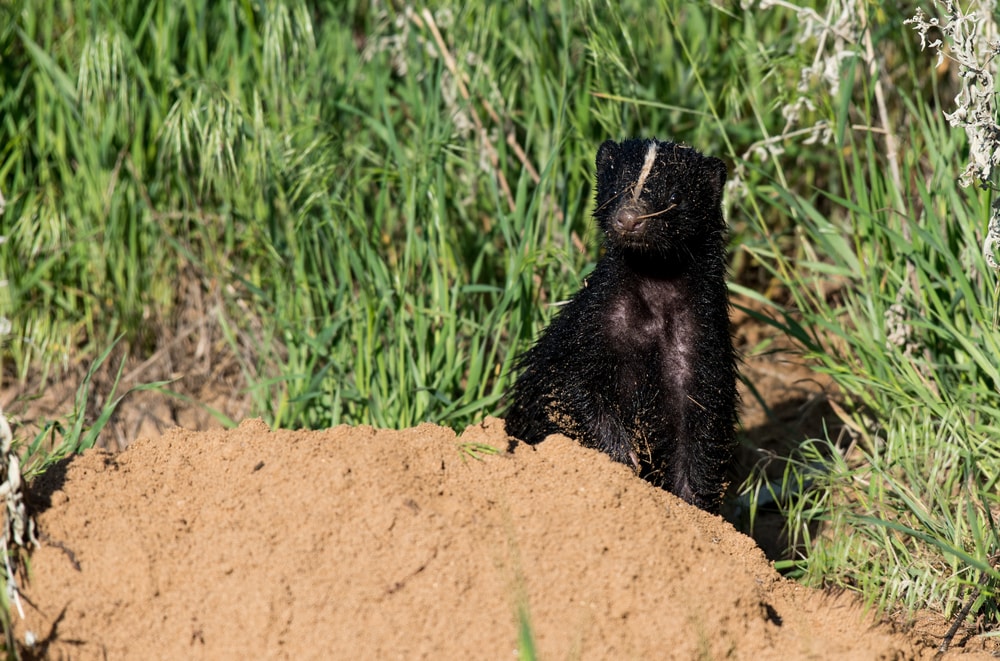
As long as food, water and shelter are available, skunks can be extremely adaptable and thrive in many different areas. They can live in both rural and urban areas.
Skunks generally live in dens that they dig with their strong front claws. These dens will be holes that you find in your yard. Or they may find and live in an abandoned den built by other animals, such as a foxes or woodchucks. Sometimes they will live in hollow logs, woodpiles or brush piles.
Due to an abundance of food and water, skunks can often be found living in close proximity to humans. They can sometimes be found under porches, in sheds or in dark enclosures around homes. Garages, barns and other structures separate from a home can also be sites for a skunk den.
WHAT DO SKUNKS EAT?
Skunks are likely to nest close to where there is food readily available. That's tricky, because skunks are omnivorous, so they'll eat a variety of things, including insects, grubs, fruit, eggs, human garbage and sometimes even small vertebrates such as mice.
HOW CAN YOU TELL IF A SKUNK IS ON YOUR PROPERTY?
Since skunks are nocturnal, you may only spot these animals on your property at night. However, if you're looking for signs during the day, skunk tracks, which show five toes on each foot with visible claws, will often be seen in places where they live. Their odorous scent is also a sign that a skunk is close by. Though they are mild mannered, they can cause damage to yards and even in sheds when building a nest or searching for food. Skunks will also dig holes in yards while looking for grubs. These holes are small and cone-shaped – one to three inches in length. They will often pilfer through trash cans, so if you wake up in the morning to raided garbage, skunks could be living nearby.
WHAT SHOULD YOU DO IF YOU SEE A SKUNK?
As mentioned already, skunks are typically calm animals. However, they will defend themselves if they feel threatened. For this reason, if you encounter a skunk, you should back away slowly and quietly. Skunks cannot see very well, so if they don’t hear loud noises or don’t sense sudden movement, then they are not likely to spray. Signs that a skunk is about to spray include stamping its front feet into the ground, shaking its tail and fluffing its fur. Another reason it's important to try to avoid skunks is because they can carry pathogens that may cause disease.
TIPS FOR SKUNK CONTROL
There are some steps that you can take to help keep your property less attractive for skunks, like:
- Removing access to their food sources by keeping your trash can tightly sealed and picking up fallen fruits, vegetables and nuts from your yard.
- Inspecting the exterior of your house for skunk access points, and properly sealing those that you find
- Inspecting your property for possible dens
If skunks are causing a nuisance on your property, then it's recommended to call a wildlife control professional. Call today to learn how Terminix® can help.




